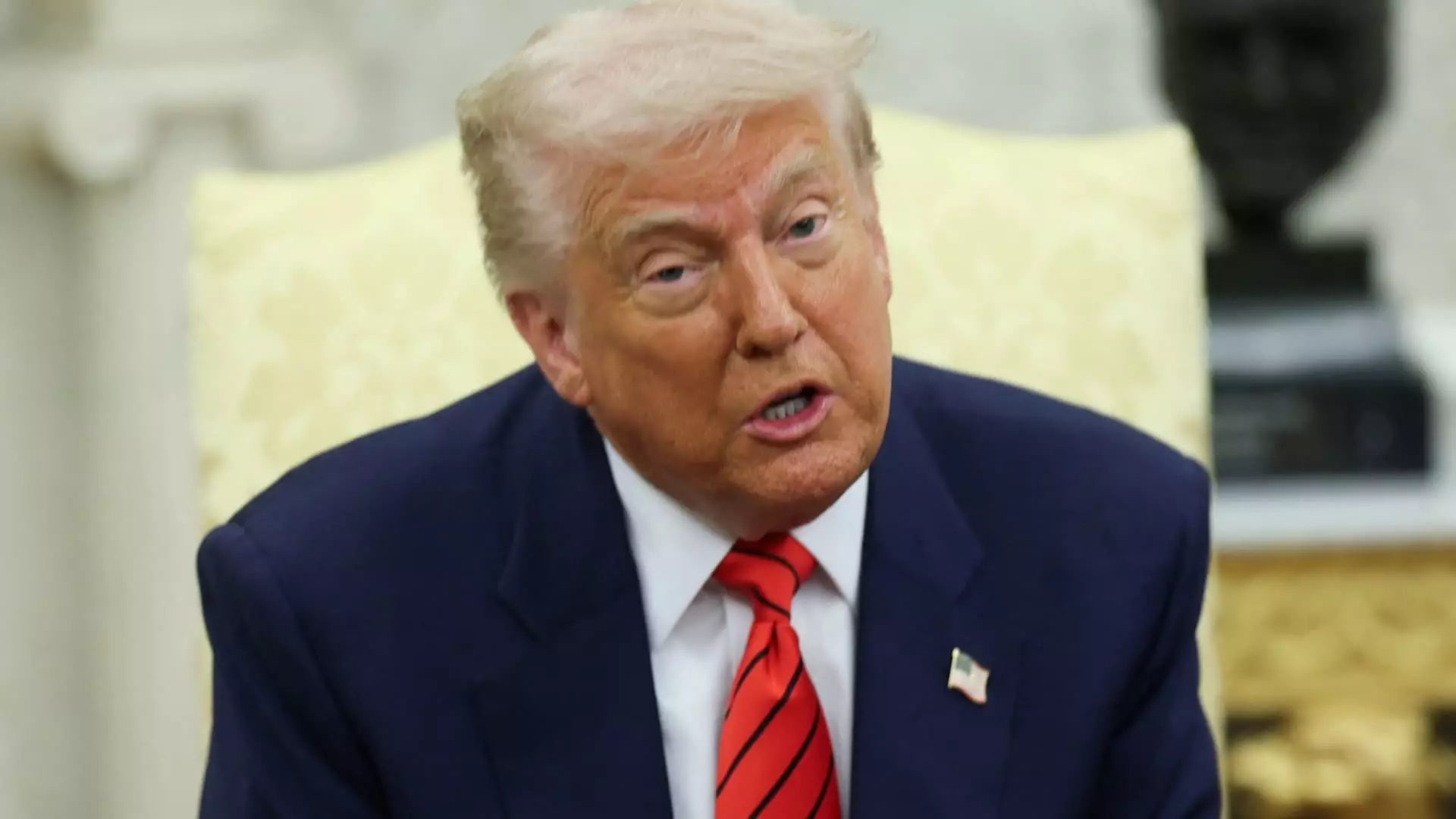In a baffling twist, President Donald Trump recently expressed that the United States does not necessarily need to finalize trade deals with its global partners. This statement diverges sharply from the ongoing narrative pushed by top White House officials, who have consistently touted trade agreements as a cornerstone of their economic strategy. Trump’s nonchalant dismissal of the need for formal contracts not only confounds expectations but also raises questions about the administration’s overall approach to international economics. The perception of urgency created by officials stands in stark contrast to the President’s casual assertion that “they have to sign deals with us.” This reflects a critical misunderstanding of the intricate balance of global trade, where cooperation often trumps unilateral demands.
Negotiation or Dictation? Understanding America’s Role
The implications of Trump’s comments echo a broader debate on American exceptionalism in trade. His belief that other nations should be eager to engage without the formality of written agreements seems to suggest an expectation of dominance that is inherently problematic. The political climate fostered by such a viewpoint risks alienating essential partners, as it implies that the U.S. holds all the cards. Trade is fundamentally about mutual benefit, and without recognizing the equal stakes of the other players involved, negotiations can devolve into a dictatorial stance rather than collaborative discussions. This was evident when Trump questioned why countries continued to inquire about ongoing deals, expressing frustration during a meeting with Prime Minister Mark Carney, where he downplayed the potential benefits of bilateral agreements.
The Disconnect Between Rhetoric and Reality
Despite the administration’s claims of being on the brink of numerous trade agreements, the lack of concrete outcomes has left investors and businesses apprehensive. Trump’s dissonance between rhetoric and reality is palpable; his comments may serve to soothe nerves momentarily, but they starkly contrast with Treasury Secretary Scott Bessent’s previous affirmations about imminent deals. This disarray raises eyebrows as to whether the President is truly in sync with his advisors or if he perceives himself above traditional negotiation strategies. Such inconsistency does not bode well for international relations, particularly with major players like India, Japan, and South Korea.
Market Response and Economic Consequences
The immediate response from U.S. markets following Trump’s remarks was telling; a notable dip in stock prices highlighted the underlying anxiety permeating the business community. The fear that the administration’s approach may escalate tensions and lead to economic stagnation is palpable. If investor confidence continues to wane due to uncertainty regarding trade policies, the consequences could ripple throughout the economy. Trump’s insistence that the U.S. should view itself as a “super luxury store” may be an idealistic vision, but it risks underestimating the reality that global competitiveness is not solely about exclusivity—it’s also about strategic openness and collaboration.
The Potential Long Game: Strategy Over Speed
Interestingly, Trump’s earlier statements about possible trade deals indicate an awareness of the long game — even if his recent comments suggest impatience with the process. The administration’s assertion that potential agreements with countries like India and Japan are “coming along great” seems at odds with the lack of tangible results. It raises the question of if there is an underlying strategy or if we’re merely witnessing a frustrating stalemate. By suggesting that he can simply “roll out” deals at a later stage, Trump appears to adopt a performative approach to governance that prioritizes optics over substance.
While trade negotiations often require years of diplomacy and projected compromise, Trump’s seemingly cavalier attitude risks undermining the very foundation of international trade relations that previous administrations sought to build. These negotiations hinge on trust and long-term commitments, not simply on a show of force or market dominance. Without laying a careful groundwork of mutual benefit, the U.S. risks losing its standing in a world where economic interdependence is increasingly the norm.

